EELS' Mark 'E' Everett on garage demos, monster hits and depression
EELS mainman charts his life in albums

EELS' Mark 'E' Everett on garage demos, monster hits and depression
“Man, I’m exhausted, I just went through my whole life,” laughs Mark ‘E’ Everett, mastermind behind US cult rock songcrafters EELS.
That E is emotionally spent after our 30 minutes on the phone is little surprise. While tracing the path of his 20-plus year career he touches on triumph, but also plenty of tragedy, from hit records to dark depression brought on by the death of just about his entire family.
So, just how did E go from lo-fi basement demos to major movie soundtracks and musical trilogies? Here he tells Musicradar in his own words...
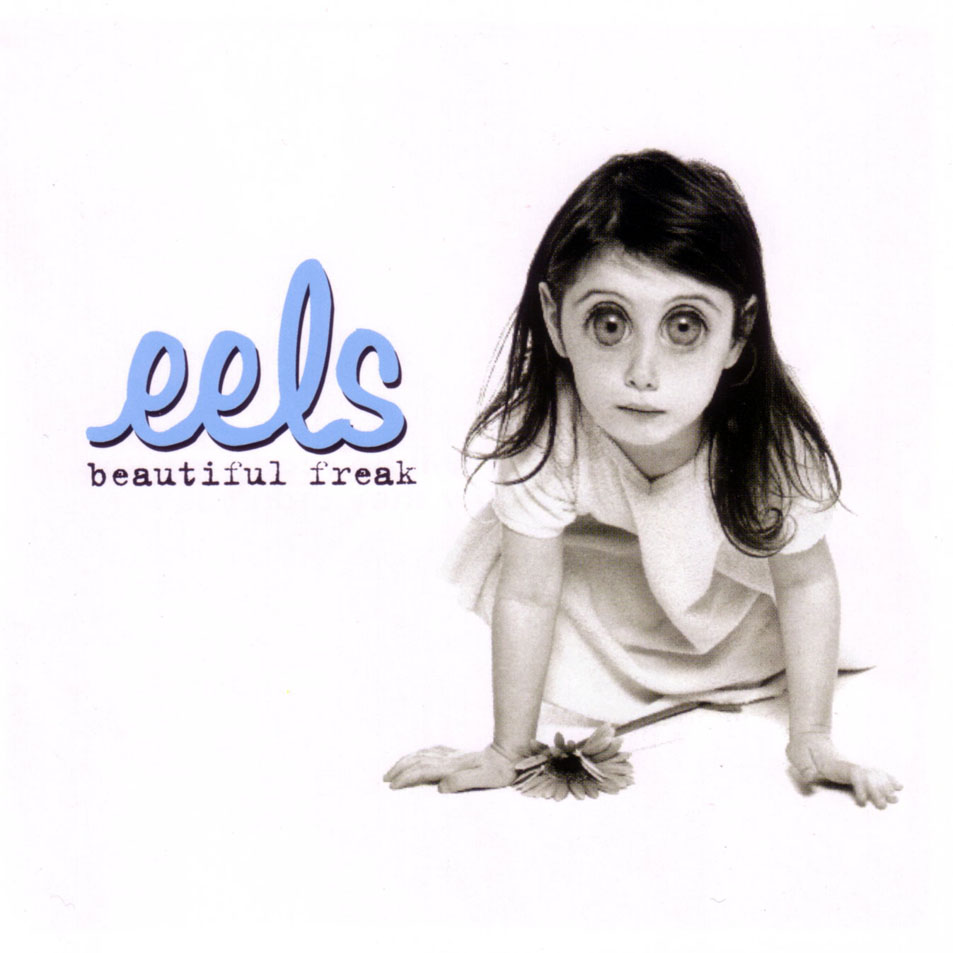
Beautiful Freak
Despite finding a smattering of critical acclaim with three solo records between 1985 and 1993, it was 1996’s Beautiful Freak that put Everett on the map.
Not only was it the first album released under the EELS banner, it was also the debut from newly founded major label DreamWorks, and it contained a monster hit or two that E had penned and recorded all on his own in his basement.
“There wasn’t much going into the studio on that one, most of what ended up on that record had been recorded over several years by myself in my basement. There were probably three songs at the end that we re-did as a band for the record.
“It had been several years that I had been recording those songs and then we put together the live version of EELS and started playing around LA. It was apparent that we were a good live act and suddenly all of the record companies were interested in us.
"I was most interested in this new company DreamWorks because it had been started by people I really respected - Mo Ostin and Lenny Waronker who were the Warner Bros guys during Warner Bros’ heyday when they signed Prince and Jimi Hendrix and countless legends. They were known as being artist friendly.
“At the time I was a little worried about putting what were essentially basement demos out on a major label record. Hopefully it gave it some sort of charm. When I came up with Novocaine For The Soul I remember thinking it was something new and exciting.
"But I didn’t have any idea it would go anywhere. Writing and recording My Beloved Monster took about 30 minutes. If you’d told me it would be in a movie called Shrek one day I would have said, ‘What’s that?!’ I don’t know if we’ve ever done a concert where we didn’t play some version of My Beloved Monster. It’s always fun to play.”
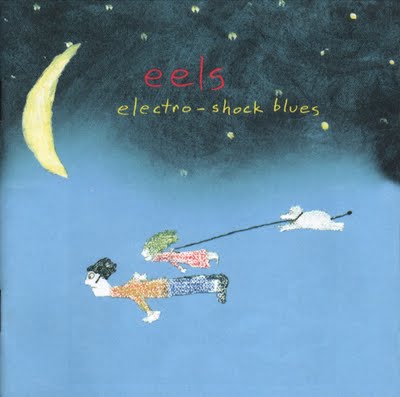
Electro Shock Blues
Under pressure to deliver the follow-up to his major label hit debut, the writing sessions for what would become Electro Shock Blues were spun on their head as E was enveloped in tragedy and turmoil.
First by the suicide of his sister and then the loss of his mother to lung cancer. The resulting pain is clear to hear on this bonafide classic album.
“When I look back on the recording of Electro Shock Blues I look back at it fondly even though it was the worst time in my life. That was the good part of it.
"It was such a sanctuary for me to go down to the basement and write and record those songs. It felt so good. It was like wrapping a warm blanket around yourself in the middle of the worst hurricane.
“It is a comforting feeling to know that people are comforted by the album, particularly because I was met with so much adversity when trying to put that record out. It was a big risk for me and was against the advice of everyone that was working with me at the time. I took the chance because I believed in it.
“The people around me were rooting for Beautiful Freak Volume II. I knew that would be a mistake, I didn’t see any point in doing that. I needed to write about the stuff that was going on in my life at that time.
“What people get out of it is outside of me so I don’t have a good handle on it. You can only treat yourself as the audience and try to impress yourself. That can be hard because I’m not a typical audience member, maybe that’s why we never get too big, because I don’t have the most typical taste in what I want to hear on a record and see at a concert.
"It’s interesting though that on a record like this; your entire family dying in a short period of time is not something most people can relate to, but people really embrace that record. Maybe it’s because they’ve had a taste of tragedy.”
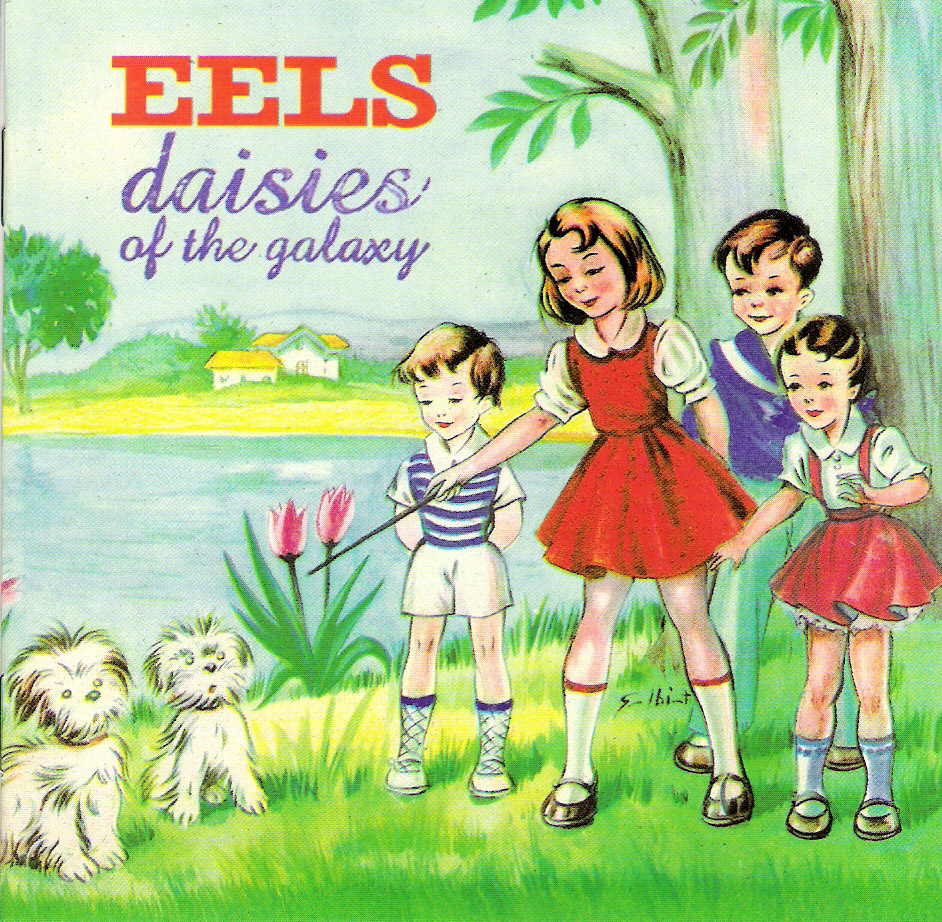
Daisies of the Galaxy
By the time 2000 came around things were far brighter in E’s world, and again his mood is reflected in his music. Lead single Mr E’s Beautiful Blues is as sunny as you will ever find EELS, although it’s a hit that nearly didn’t make it onto the album at all.
“After going through a couple of years of my family dying while making Electro Shock Blues I was pretty desperate to go in another direction and create a feeling of a new beginning in my life. I moved into a new house, went back and cleaned out the family house and it was a fresh start, that is reflected in the music on that record.
“Mr E’s Beautiful Blues came about well after the record was finished and was sitting on the record company shelf collecting dust. They wanted another single, or just any song that could be a single! I kept disagreeing with them.
"Then one day I walked out into the backyard and I was like, ‘Goddamn it’s a nice day, it’s a beautiful day,’ and I started circulating that in my head. I got together with Mike Simpson and we banged that out really fast.
“Putting it as a secret track on the record was a source of contention with me and the record company. I tried to put it in the sequence of the album but it wrecked the flow, I was satisfied with the album the way it was and the arc it had from song to song.
"I told them it couldn’t go on there and then I finally came up with making it an unlisted bonus track. I thought that’d make it a cool thing that people had to discover. The record company thought I was insane, it was the song with the most commercial potential and it wasn’t even listed.
“One of the best things to happen to us was when the George Bush campaign used some songs from Daisies of the Galaxy as an example of inappropriate music. It was hilarious. It was typical George Bush.
"Because the album cover was this storybook they said the music was targeted at very young children and it had a song called It’s A Motherfucker. They said I was telling children to fuck their mothers. Very literal, those George Bush people. You can’t buy publicity like that, but if I could have bought it, I would have.”
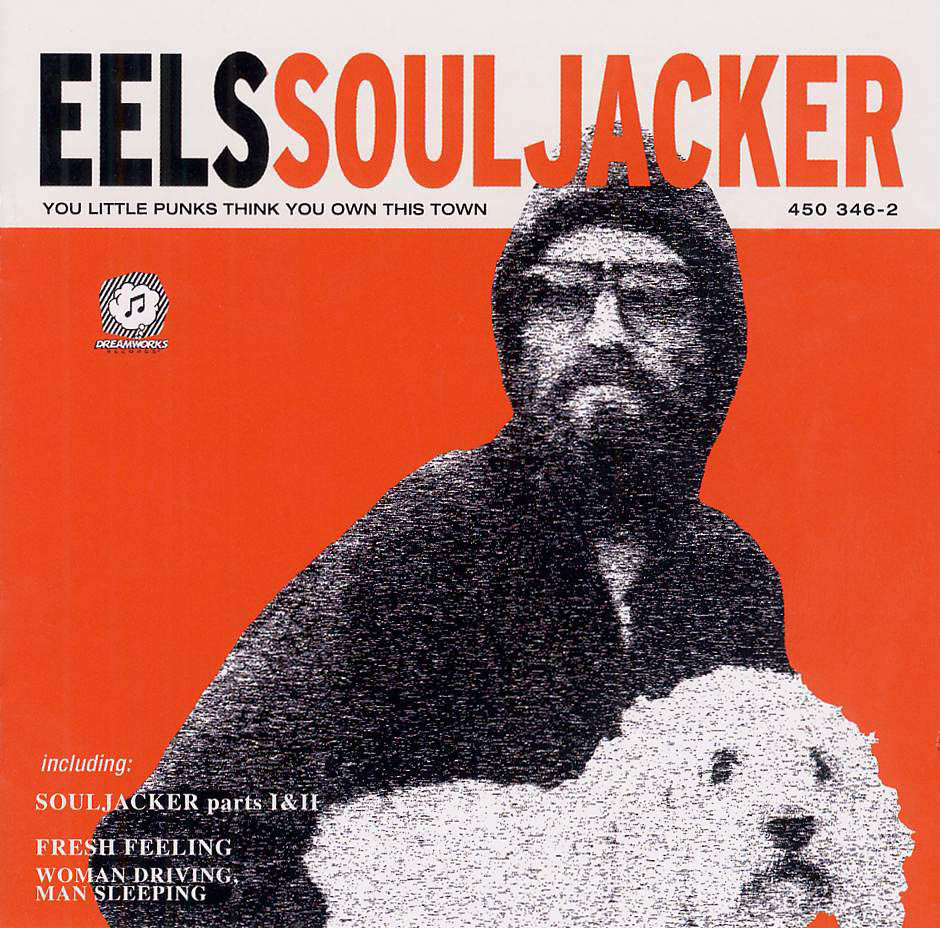
Souljacker
Another album and another left turn, this time with a hefty dollop of fuzz rock added into EELS’ trademark thinking-man’s indie.
“That might have been the biggest leap ever musically, Daisies of the Galaxy to Souljacker. As with all the records, it was a lonely battle for me because no one knew what to make of it.
"They just thought it wasn’t what the EELS was supposed to sound like. It was abrasive, hard and rocking, but what they failed to notice was that it was also good. I don’t care what genre it is, it just has to be effective and this album was effective.
"It came out to a lot of head scratching but I think it has stood the test of time and people now hold it in high regard. It had the added element of really dirty, fuzzy rock.”

Shootenanny!
After the critical sniping that met Souljacker, E continued to plough on regardless and did what he does best, pumped out a slab of brash indie rock. Although it seems there is more to the recording of Shootenanny! than meets the eye…
“For me, there is an inside story for this album. I had been working on what eventually became the Blinking Lights album and was getting overwhelmed by it and needed a break from it. So for me, Shootenanny! was the thing after Blinking Lights.
"I had been working on all this pretty orchestrated music, I liked the results but that is the least fun way to make music. The funnest way is to get the band together and plug your guitars in. I just needed to go do that and that ended up coming out immediately after Souljacker and nobody knew this Blinking Lights thing was going on.
”[On the birth of the track Fashion Awards] I turned on the TV and there was some fashion awards show on and it felt like a sign of the changing times. Everybody was so excited and focused on complete and utter bullshit and it was getting worse and I was just trying to make some comment on that.
“I think Love of the Loveless is a good song, as well. I think I knew there was an obscure Beatles song called Love of the Loved and I was thinking, ‘What the hell does that mean, what about the love of the loveless, what about those people?’”
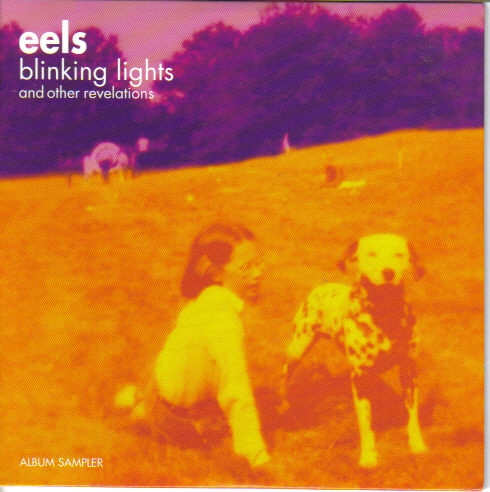
Blinking Lights and Other Revelations
And here, finally, is the Blinking Lights project. Two discs, 33 songs, a real labour of love. So much so that the inter-label wrangles that proceeded its release could have just about driven E to desperate measures...
“The longer you do this the harder it gets because you have to challenge yourself and go to places you haven’t been. It’s hard, particularly doing a double album with that many songs on. That one was a particularly harrowing situation.
"Right after Shootenanny! DreamWorks got sold to Universal and we got shuffled over to Interscope. They gave us all the hot air about what a great artist I am and how glad they were to have me.
“I finished Blinking Lights and was ready to play it for them and they said, ‘Nah, this isn’t the right place for you.’ They didn’t even listen to a single note of it. They paid me to go away, I kept the album and made a new deal, so I got paid for it.
"It was great, but it didn’t feel great at the time. It was awful and felt really depressing for me. But, I think the label could have kept that album. It was a dangerous situation for me.
"I had paid for the whole making of the album and it was finished in their office. In the contract they could have kept it. That would have been the greatest tragedy in the world for me, making this 33-track album and no one would ever hear it. I might have had to kill myself, so I’m glad that didn’t happen!”
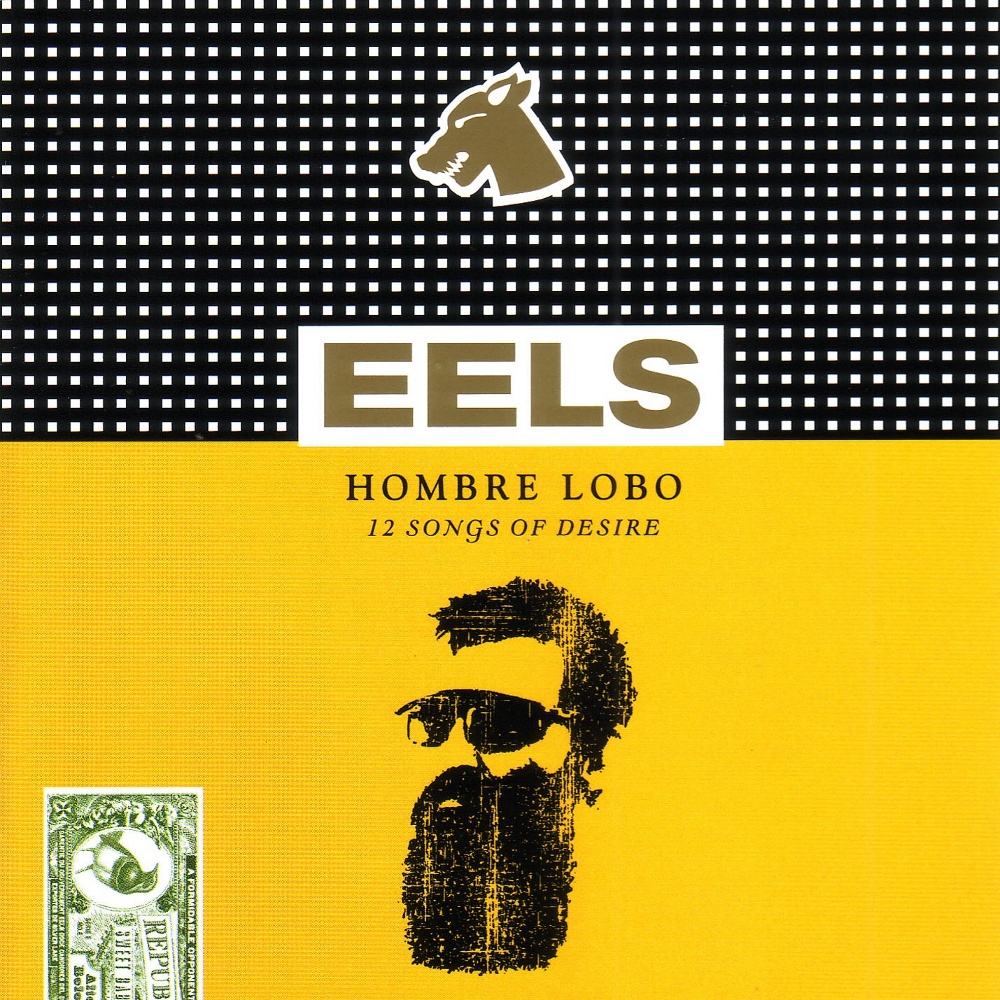
Hombre Lobo, End Times and Tomorrow Morning Trilogy
How do you follow up a huge, orchestrated double album? How about a musical trilogy? That is exactly what E did as he explored desire (Hombre Lobo), loss (End Times) and renewal (Tomorrow Morning).
“Blinking Lights was so well received and we went on a massive tour. After that was done I felt painted into a corner and didn’t know how to follow it up so I took four years off. But that whole time I was making these three records.
"I had a plan to make two records related to each other and then realised I should do a prequel that is the beginning of the story. People probably thought I made those records in a hurry because they were put out six months apart, but I worked on them for four years.
“Each topic related to my life at the time but they are universal topics, desire, loss and renewal. I thought I could relate to them in my life, but then so can anyone.”
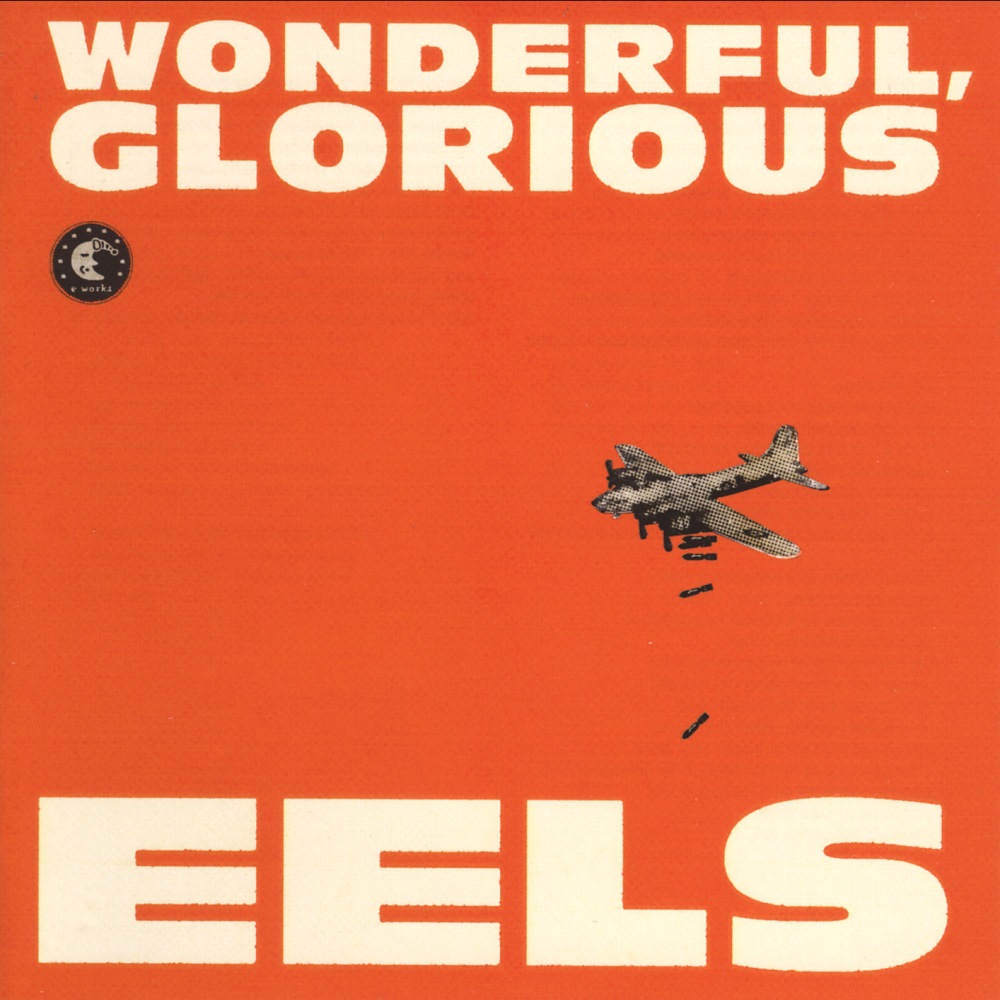
Wonderful, Glorious
And so we go full circle. After orchestras, movie soundtracks, hit singles and concept trilogies, E returns to his roots with a raw rock record written on the hoof.
“We went in with no pre-production, nothing written, it was probably the most fun record I’ve made. We were all in the right mood to connect and were all firing on all cylinders.
"That is the funnest way to make music as opposed to sitting at a computer or working with an orchestrator. You’re in there, everyone is contributing, it is really exciting and fun.
“I’ve never done anything like the way we wrote this album before. It all depends on your mood, what’s going on in your life and how you want to approach telling a story, there are all sorts of elements to it.
"Same with gear, I have a small handful of guitars that I like to use on tour, whereas in the studio any guitar is a possibility. There are an awful lot of guitars in the studio that offer all sorts of sounds and performances. I’ve never met a guitar that I didn’t like.”
Rich is a teacher, one time Rhythm staff writer and experienced freelance journalist who has interviewed countless revered musicians, engineers, producers and stars for the our world-leading music making portfolio, including such titles as Rhythm, Total Guitar, Guitarist, Guitar World, and MusicRadar. His victims include such luminaries as Ice T, Mark Guilani and Jamie Oliver (the drumming one).
